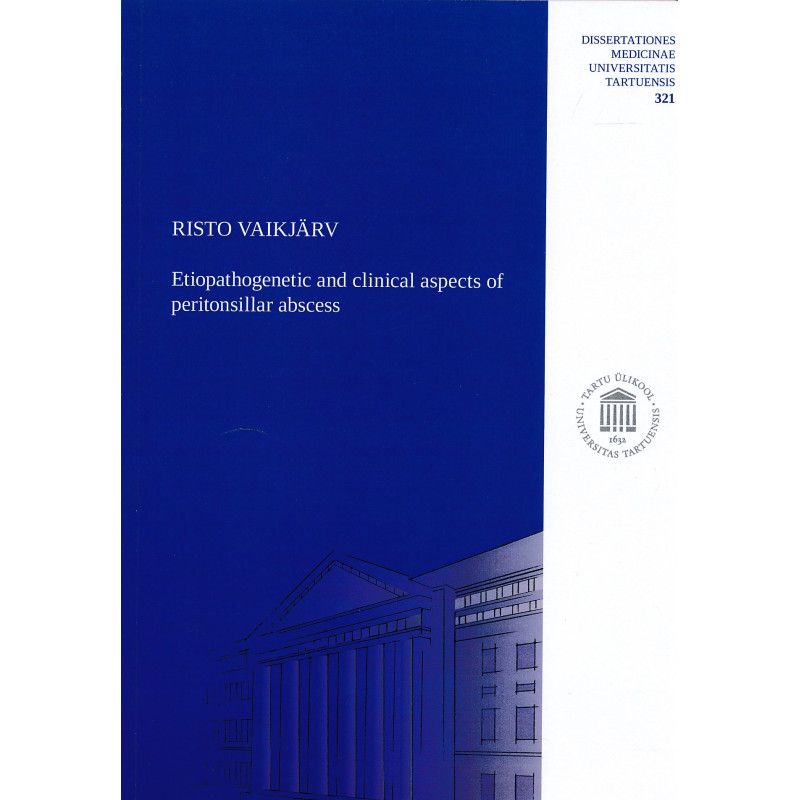



Tartu : University of Tartu Press, 2021
114 p. : ill.
ISBN: 9789949037834
Dissertationes medicinae Universitatis Tartuensis, 1024-395X ; 321
Paperback new dissertation.
Peritonsillar abscess (PTA) is characterised by the accumulation of a purulent secretion between the fibrous capsule of the palatine tonsil and the pharyngeal superior constrictor muscle. Treatment of PTA usually consists of opening the abscess and adequate antibacterial therapy. PTA has traditionally been regarded as a complication of acute tonsillitis, but some studies have shown that PTA can also develop from small salivary gland (Weber’s gland) infection. The main aim of the present thesis was to evaluate the etiopathogenetic factors, aspects of the clinical picture and possible novel ways to treat and prevent peritonsillar abscess. A total of 114 patients were studied in two different phases. Risk factors for the development of PTA appeared to be scarring and fibrosis within the tonsils and peritonsillar tissue due to previous recurrent inflammations. Smoking and not receiving antibacterial treatment before hospitalisation were associated with a more acute clinical picture of PTA. Although half of PTA patients fulfilled the clinical criteria for sepsis, it did not worsen or extend clinical course of PTA. We found that tonsillar fossa sample is the best specimen for microbiological analysis using a culture method since it has a significantly higher yield of pathogenic bacteria than a culture of free pus. In the case of molecular diagnostics, both pus samples and biopsy samples appeared to be suitable. The most common causative agents of PTA tended to be Streptococcus pyogenes, fusobacteria and Streptococcus anginosus group. Penicillin alone proves to be the optimal empirical choice for PTA treatment. PTA is frequently associated with Streptococcus pyogenes that is also the most common causative agent for acute tonsillitis. The polyols such as erythritol and xylitol showed an inhibitory effect against most Streptococcus pyogenes strains and may therefore have potential in preventing PTA and relieving Streptococcus pyogenes throat infection.